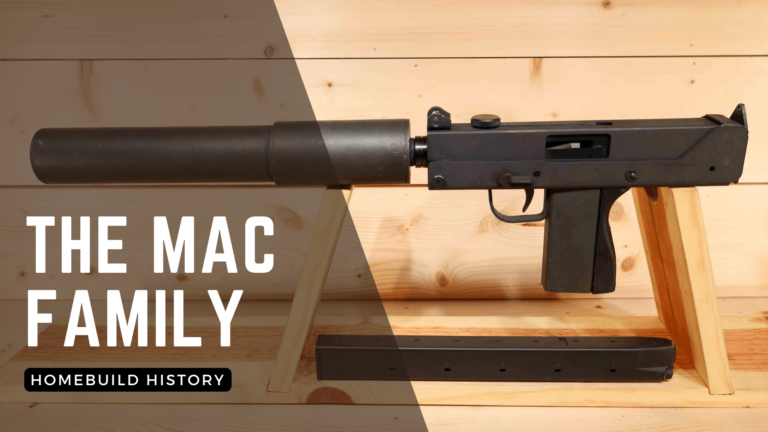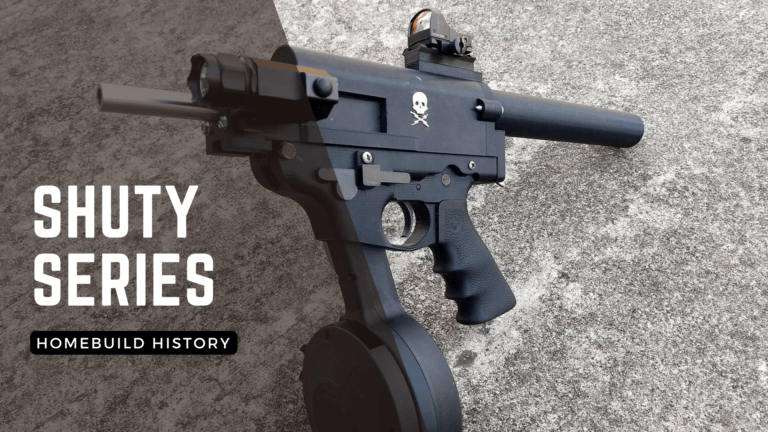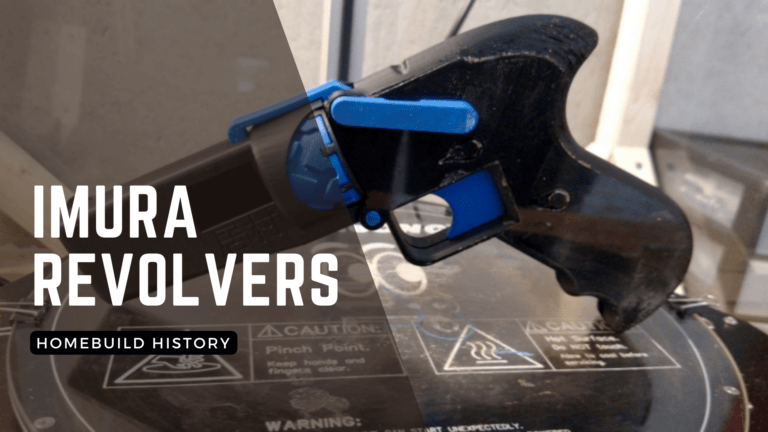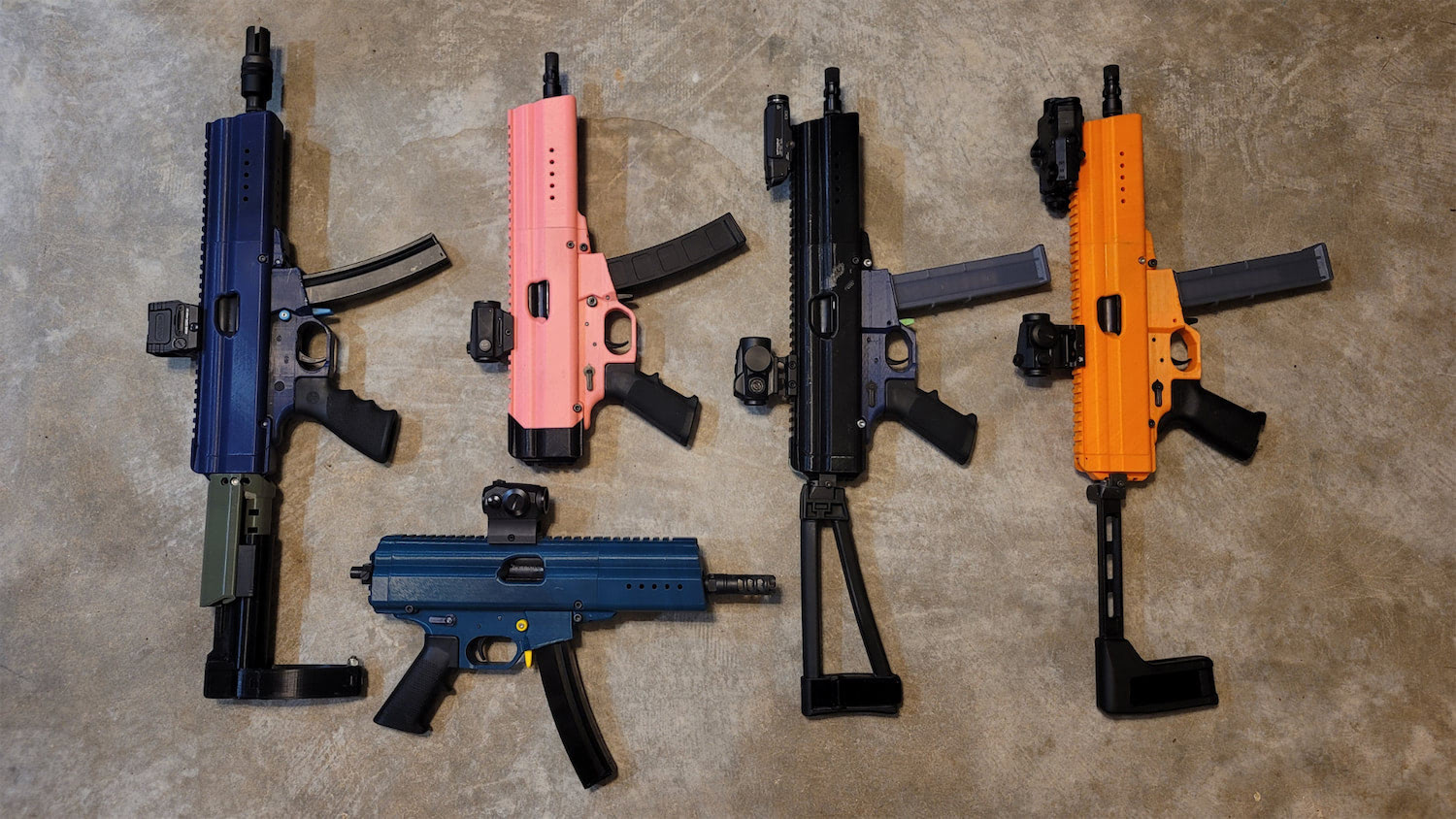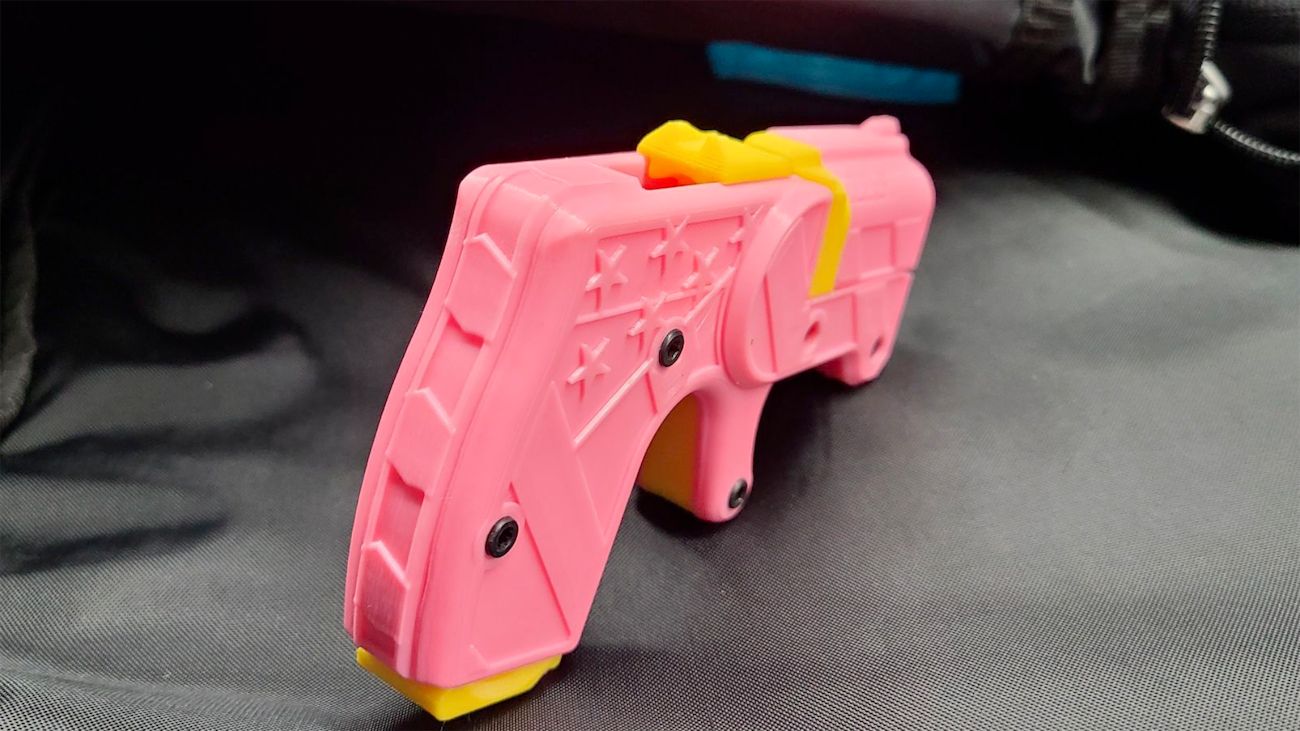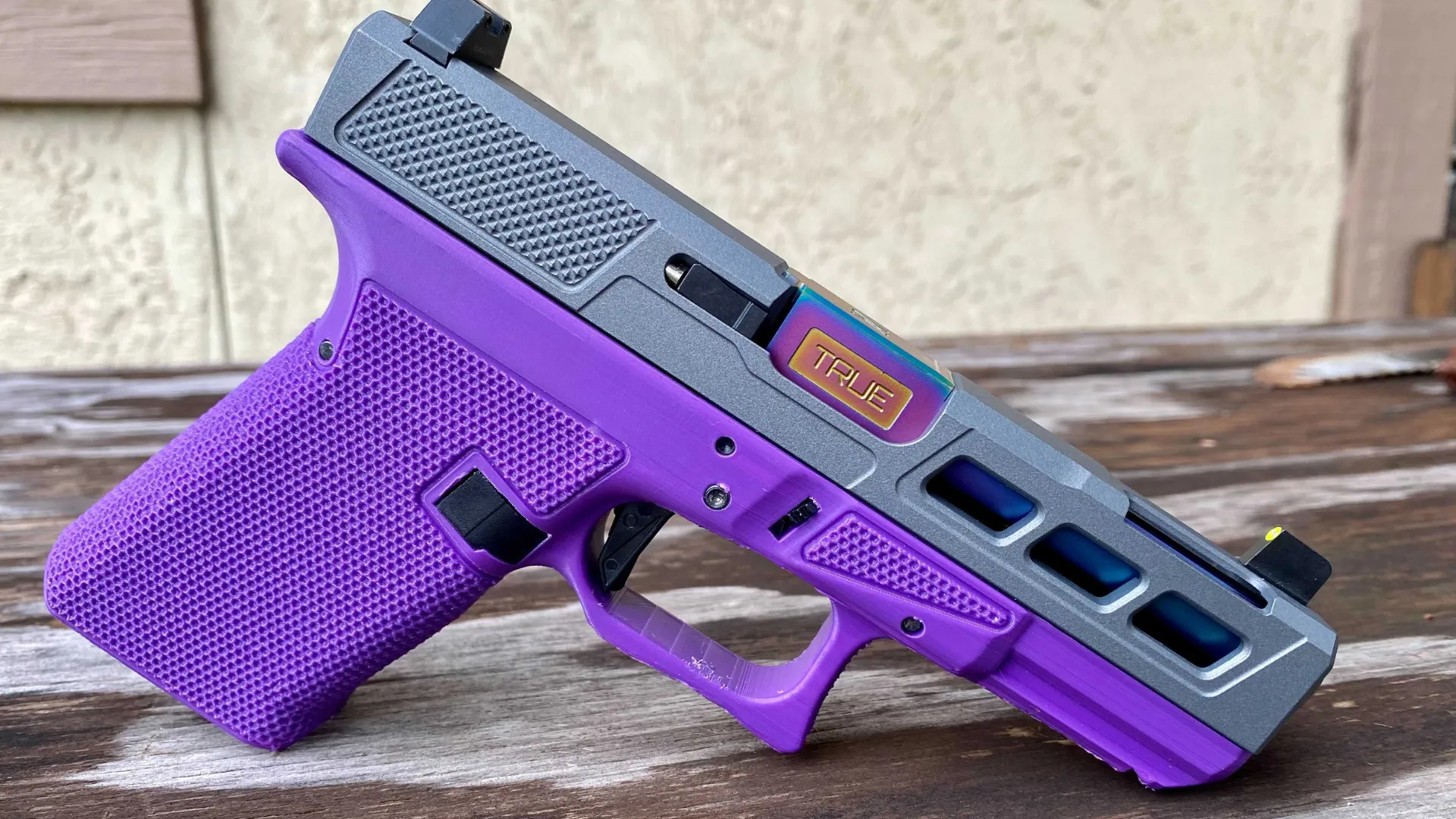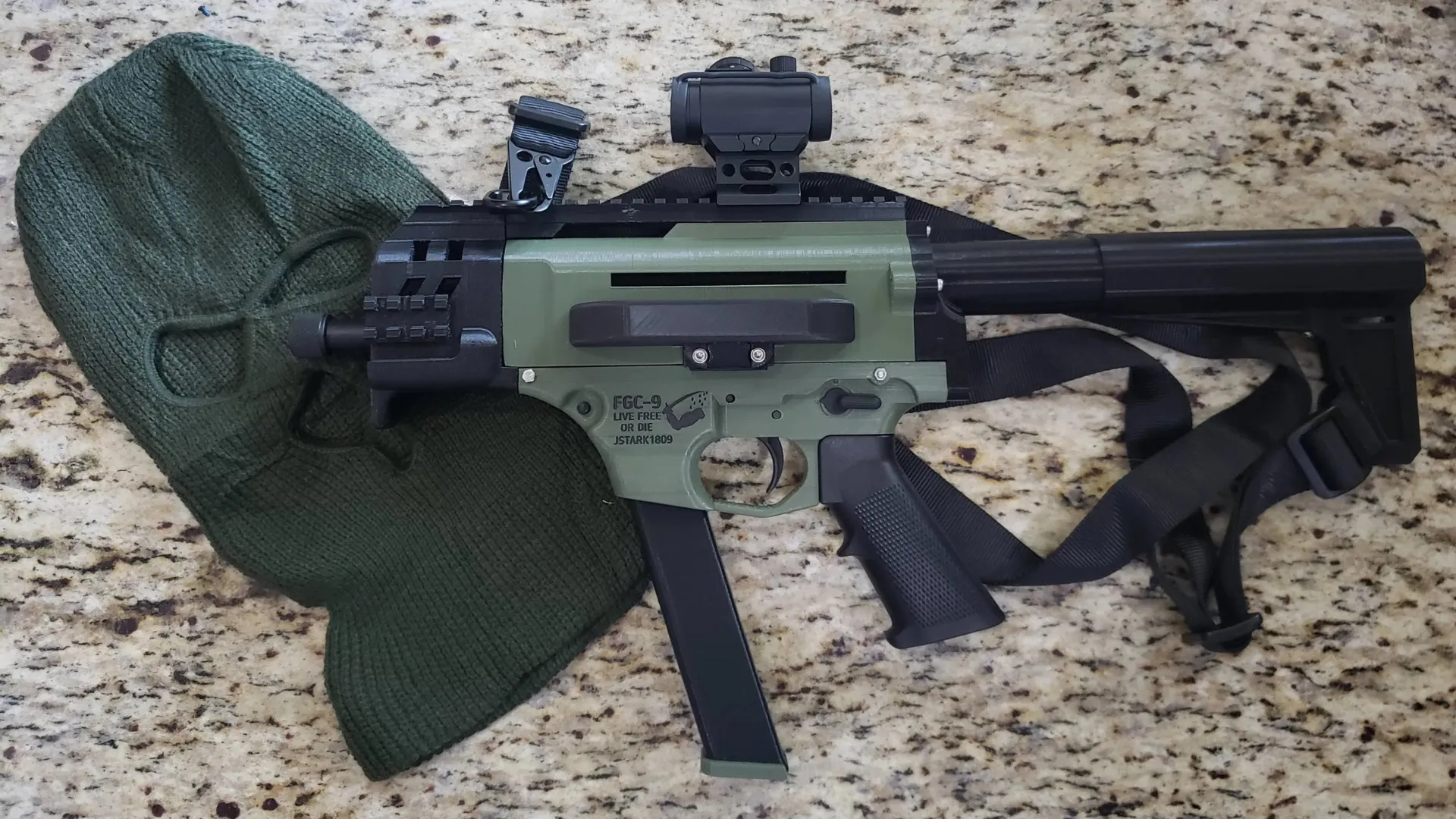Welcome to Homebuild History, a new segment on 3D Gun Builder’s website where we focus on the history of some of the most iconic homebuilt firearms, their contributions to the world, and most importantly, how YOU AT HOME can get your hands on these classic arms and armaments!
What’s the Story?
Britain was soundly trounced at Dunkirk. A significant amount of their equipment was abandoned on the beaches as they fled. The Royal Armoury was desperate to arm their soldiers with something that could be produced cheaply and quickly. Import of American Thompson submachine guns was burning through the British bankroll and was unaffordable, so a domestic solution was needed.

That solution is the Sten, or more precisely, the STEN.
The Sten is, at its core, one of the simplest submachine guns made in the first half of the 20th century. With a receiver that’s nothing more than a cut steel tube and most of its base components being stamped plate, the Sten has an ease of manufacture unlike any other production-quality gun in its class.

Its general design, taken from the Lanchester SMG and the MP28 it was copied from, was exceedingly familiar to the men who used it. Millions of examples were produced and used to arm the Royal Army for the Second Great War and decades to come.
The Sten design spawned countless imitators. Nazi Germany itself produced the MP 3008, almost identical to the real thing except for the magazine’s position. Australia tried to convert the gun to use castings, creating the failure that was the Austen. Sten guns were produced in Canada, and two different suppressed Stens, the Mk II(S) and Mk VI, were used by British commandos. During the Arab-Israeli War, Jews fabricated Sten guns using a “cottage industry” production system and used them against the Palestinians, Egyptians, and Jordanians. Argentina copied the Sten post-war, and even in the 80s and 90s there were companies producing variants for the market.

To this day there are companies making copies of the Sten gun for the commercial market, usually small semi-auto runs that don’t last for more than a few years. But other groups have had far more success when it came to finding users for their own variants.
Insurgency and Insurrection

The same manufacturing techniques that made the Sten gun widely produced in Britain and beyond also made it particularly suited to clandestine manufacture. Since even scrap metal could be repurposed for the extremely basic fire control group, bolt, and stock, the Sten became as much a tool of resistance to tyranny as it was a tool of the British Empire. Partisans across Europe repurposed local manufacturing to produce either direct copies or derivatives of the Sten for their own use. The fact 9mm Parabellum was and is the most popular pistol ammunition worldwide was of tremendous benefit.
Outside of Europe, and as mentioned before in Israel, Indonesian guerrillas used their own Stens during their revolution against the Dutch. In India and its splinter states, the Sten has a rather grim reputation, as two rulers – Bangladeshi president Sheikh Mujibur Rahman and Indian prime minister Indira Gandhi – were assassinated using Sten guns. Both the Communist and Nationalist Chinese used the weapon during their own Civil War, and the Vietcong were making copies of the Sten alongside their other homebuilt weapons during their war with America.

As expected, if insurgents were able to make them, criminals were as well. Criminal groups like the Ulster Volunteer Force built the Avenger, a submachine gun derived from the Sten but made of square instead of round tubing. In Brazil, Sten-type submachine guns are produced by the droves in the hidden factories of Minas Gerais, alongside copies of MACs, Lutys, and more unique designs.
The Sten in America
Though not the most popular weapon in the United States, the Sten does have a following among a number of niche groups. Criminal use of Stens or their derivatives is almost unheard of on the North American continent. Most original examples in the United States were either sold as war surplus or brought back from Europe and other battlefields, and command relatively low prices for machine guns if transferable.
International Ordnance, not to be confused with InterOrdnance, produced perhaps the most radical redesign of the Sten gun in the form of the MP2. Essentially the result of splicing the genes of the MAC series with the Sten, the MP2 was significantly more compact than the original design while having additional features like a foregrip (which doubled as a magazine holder) and a compensator.

The last source of Sten guns, and the most relevant to the series, are homebuilt. These examples are either completely fabricated at home or made using parts kits from demilled original Stens. With very few exceptions, most are semi-automatic, and typically either lack a stock or have a significantly longer barrel than the standard Sten design to comply with US laws. The exceptions are typically built by Class 2 SOTs who want a simple and fun toy to play with, or alternatively, are built by gun ranges for use by customers. Neither example can be legally owned by the general public, sadly, though there are organizations working to push back against these oppressive laws.
How do I make it?

While incredibly simple to make*, plans for making the Sten gun are not as easy to find as those of the paliuntod showcased last week. There are two main sources of plans a savvy builder can find on the internet. As they’re PDFs and not image files, I’ve chosen not to upload them here, but they’re incredibly easy to find.
The first set is an anonymous document titled “the Sten Mk II complete machine plans.” Having circulated for years across multiple websites, this document is as its name suggests: the full manufacturing plans for the Sten Mk II submachine gun. While a bit more complex than other homebuilt designs, the Mk II is a flexible and adaptable firearm as a homebuild, able to be reconfigured in multiple different ways (eg. stocks, pistol grips, foregrips, etc). I would recommend using these plans in concert with a parts kit, as
The second and arguably more famous set was made by Professor Parabellum, famed pseudonymous weaponsmith whose designs have been adapted by insurgents, criminals, and hobbyists around the entire world. Volume 3 of his “Practical Scrap Metal Small Arms” series focused on his interpretation of the Sten Mk III, the simplest Sten variant. Though it’s not designed to the same fit and finish of the Mk II plans, the PPara Sten is much simpler to fabricate and outlines exactly what a homebuilder needs to be able to finish it.
Tune in next week for more Homebuild History!
*Legally, of course. Laws don’t stop you from building this, but we at 3DGunBuilder encourage readers to follow all legal guidelines. If you can’t make this in your state or country, please don’t try to. Just remember that this is here for educational and research purposes only.

